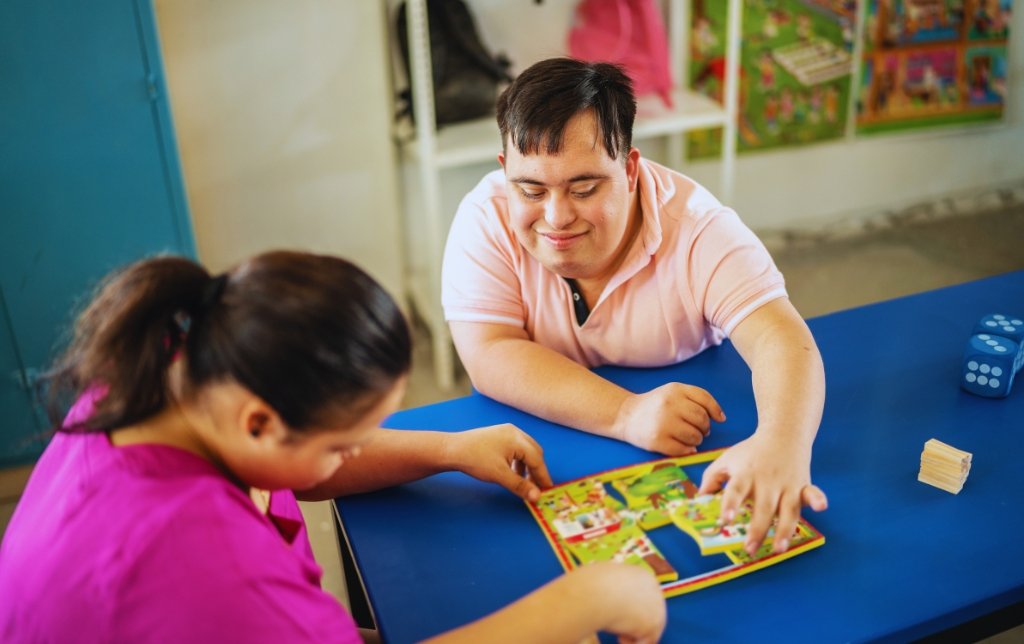No products in the cart.
What does a teaching assistant do? A teaching assistant helps teachers and pupils every day. With their help, learning becomes easier and more enjoyable. As a result, children feel happier and more confident. During lessons, they help prepare materials, support activities, and make sure everyone understands the work. At the same time, they keep things calm and organised so teachers can focus fully on teaching. Most of all, they bring kindness, patience, and care to the classroom.
In this article, we talk about what teaching assistants do and why their job matters in schools. You’ll learn how they help teachers, support pupils, and keep lessons running smoothly. We’ll also look at their daily work, the skills they need, and how they make school life better for everyone. By the end, you’ll understand their role and why they are so important.
What Is a Teaching Assistant?
A teaching assistant is a friendly helper in the classroom who supports both teachers and pupils. They work closely with the class teacher or the school’s SENDCo to make learning easier for everyone. Sometimes they help the whole class, sometimes small groups and sometimes one child who needs extra care. They’re the extra pair of hands that keep lessons running smoothly and make sure every child feels supported, understood and ready to learn.
What Does a Teaching Assistant Do in the Classroom Day to Day?
In the classroom, a teaching assistant helps both teachers and pupils from morning until the end of the school day. They make sure learning goes smoothly and everyone feels supported. Here’s what they do day to day:
- Move around the classroom to see who needs help.
- Check if pupils understand the lesson and explain things clearly.
- Show how to do tasks step by step.
- Give gentle prompts to help pupils stay on track.
- Praise children for trying hard and doing their best.
- Comfort pupils who feel upset or confused.
- Prepare books, pencils, and other learning tools before lessons start.
- Keep the classroom tidy and organised.
- Help with daily routines, like lining up or packing away after class.
- Support the teacher so lessons stay calm and focused.
With their kindness, patience, and care, teaching assistants help every child feel confident and ready to learn each day.
How Do Teaching Assistants Support Individual and Small-Group Learning?

Teaching assistants give extra help to pupils who need it. They often work with one child or a small group so everyone can learn well and feel happy. Here’s what they do:
- Help one pupil or a small group with schoolwork.
- Use easy, step-by-step activities for reading, writing, or maths.
- Break big jobs into small parts so pupils don’t feel worried.
- Explain lessons in simple words that are easy to understand.
- Use games, cards, or fun tasks to make learning more interesting.
- Watch how pupils are doing and see where they need help.
- Keep short notes about progress and tell the teacher later.
- Work with the teacher to plan what to do next.
- Give kind words and praise to make pupils feel confident.
- Remind pupils that mistakes are okay and help them try again.
With care and patience, teaching assistants help every child feel proud, supported, and ready to learn.
What Does a Teaching Assistant Do for Students with SEN or EAL?
Teaching assistants give extra help to pupils with SEN (Special Educational Needs) or EAL (English as an Additional Language). Teaching assistants make sure every child feels safe, calm, and part of the class.
To begin with, they use pictures, charts, and simple words to help pupils understand lessons. As a result, learning feels easier and less stressful. In addition, they follow clear routines so children always know what will happen next. This helps them feel secure and ready to learn. Above all, teaching assistants bring care and patience, making the classroom a happy and welcoming place for everyone.
Sometimes they change worksheets or use special tools to make learning easier. They also give more time when a pupil needs it and always cheer them on with kind words.
If a pupil feels upset or worried, the teaching assistant stays calm and helps them relax. They listen, speak softly, and help the child feel better. With patience, care, and smiles, TAs make sure every child can learn and feel happy at school.
How Do TAs Help Teachers with Resources, Planning and Feedback?
Teaching assistants help teachers in many helpful ways each day. They make sure lessons are ready, run smoothly, and end well. Here’s how they do it step by step:
Before Lessons
- Get books, papers, and classroom tools ready.
- Set up tables and hand out worksheets.
- Make sure pupils have pencils and other materials they need.
During Lessons
- Help pupils stay focused and on task.
- Watch carefully to see who needs more help.
- Support small groups or individual pupils with their work.
- Keep the classroom calm and organised.
After Lessons
- Take short notes about what pupils did well or found hard.
- Share this information with the teacher.
- Help plan what to do next based on pupil progress.
- Tidy up and prepare for the next activity.
By helping at every stage, teaching assistants make learning easier for teachers and pupils alike.
What Classroom Duties Do TAs Handle Outside of Lessons?

Teaching assistants help in many ways, not just during lessons. They stay busy all day to keep school life running well.
At playtime or lunchtime, they watch pupils to make sure everyone is safe and happy. They help with after-school clubs, school trips, and special events, too. Their support helps things go smoothly and makes activities more fun.
They also listen to pupils read or lead small reading groups to help children get better at reading. Sometimes they do simple office jobs like sorting papers, putting up displays, or keeping records up to date.TAs also join training sessions to learn new skills and find better ways to help pupils. With their care and hard work, teaching assistants make every part of school life calm, safe, and enjoyable for everyone.
How Do Teaching Assistants Support Behaviour and Wellbeing?
Teaching assistants help pupils feel safe, calm, and happy at school. They use kind words, clear rules, and gentle help every day. Here’s how they support behaviour and wellbeing:
- Give small reminders to help pupils stay focused and calm.
- Follow clear routines so pupils know what to do next.
- Use praise and kind words when pupils behave well.
- Notice when someone feels sad, worried, or upset.
- Talk to pupils in a calm way to solve problems.
- Help them understand what went wrong and how to fix it.
- Watch carefully for signs that a pupil may need extra help.
- Tell the teacher or safeguarding team if something seems wrong.
- Stay calm, kind, and patient in every situation.
- Help make the classroom a happy and safe place for everyone.
With care and kindness, teaching assistants help every pupil feel respected, supported, and ready to learn.
What Skills Make a Great Teaching Assistant?
A great teaching assistant has many simple but important skills that help pupils learn and feel happy at school. They stay calm, kind, and always ready to help.
Here are some skills that make a great teaching assistant:
- Calm communication: They stay calm and talk clearly, even when the class is noisy.
- Patience: They give pupils time to learn and never rush them.
- Teamwork: They work well with teachers and other staff.
- Inclusion and SEND awareness: They make sure every child feels included and cared for.
- Behaviour support: They use gentle and fair ways to help pupils behave well.
- Organisation: They keep books and materials tidy and ready for lessons.
- ICT confidence: They can use computers and tablets to help pupils learn.
With these skills and a caring heart, teaching assistants make school a warm, safe, and happy place for everyone.
How Does the TA Role Change with Experience (Level 2, Level 3, HLTA)?

As teaching assistants get more experience, their jobs change and grow. They learn new things and take on more important work. Here’s how it usually happens:
Level 2 – Starting Out
- Help the teacher with simple classroom jobs.
- Support pupils with learning and daily routines.
- Keep the classroom neat and ready for lessons.
- Learn how to work well with teachers and pupils.
Level 3 – More Responsibility
- Help small groups or one pupil who needs extra support.
- Plan short learning tasks with the teacher.
- Watch how pupils are doing and tell the teacher.
- Work more on their own during lessons.
HLTA (Higher Level Teaching Assistant) – Leading Learning
- Lead parts of lessons or cover the class if the teacher is away.
- Help pupils with harder work and guide them in learning.
- Support pupils with different learning needs.
- Take a bigger role in helping lessons run smoothly.
Each level helps a TA learn more, grow in confidence and play a bigger part in helping pupils succeed.
Final Thoughts: Why Teaching Assistants Matter in Every School
Teaching assistants play a crucial role in every classroom. They support teachers, help pupils learn, and make lessons run smoothly. With their care and patience, they create a calm and positive space where children feel safe, understood, and ready to learn.
If you want to start a career in education, the Teaching Assistant Course from Wise Campus is a great place to begin. It teaches you the key skills to support pupils, work with teachers, and build confidence in the classroom.
FAQs: Teaching Assistant Role (UK)
- What are the duties and responsibilities of a teaching assistant?
A teaching assistant helps the teacher with lessons, supports pupils in class, and gives extra help to those who need it.
- Can I be a TA with no experience?
Yes, you can become a teaching assistant without experience. You can start by taking a course or doing some volunteer work.
- Can a TA legally teach a class?
Yes, a teaching assistant can teach a class for a short time. But they must follow plans and be supervised by a teacher.
- What is the minimum wage for a TA?
The starting pay for a Level 1 teaching assistant is about £17,800 a year. Level 2 TAs earn around £18,000 to £20,000.
- How do I introduce myself as a teaching assistant?
When you introduce yourself, share a bit about your background, what you study, and why you enjoy helping pupils learn.




